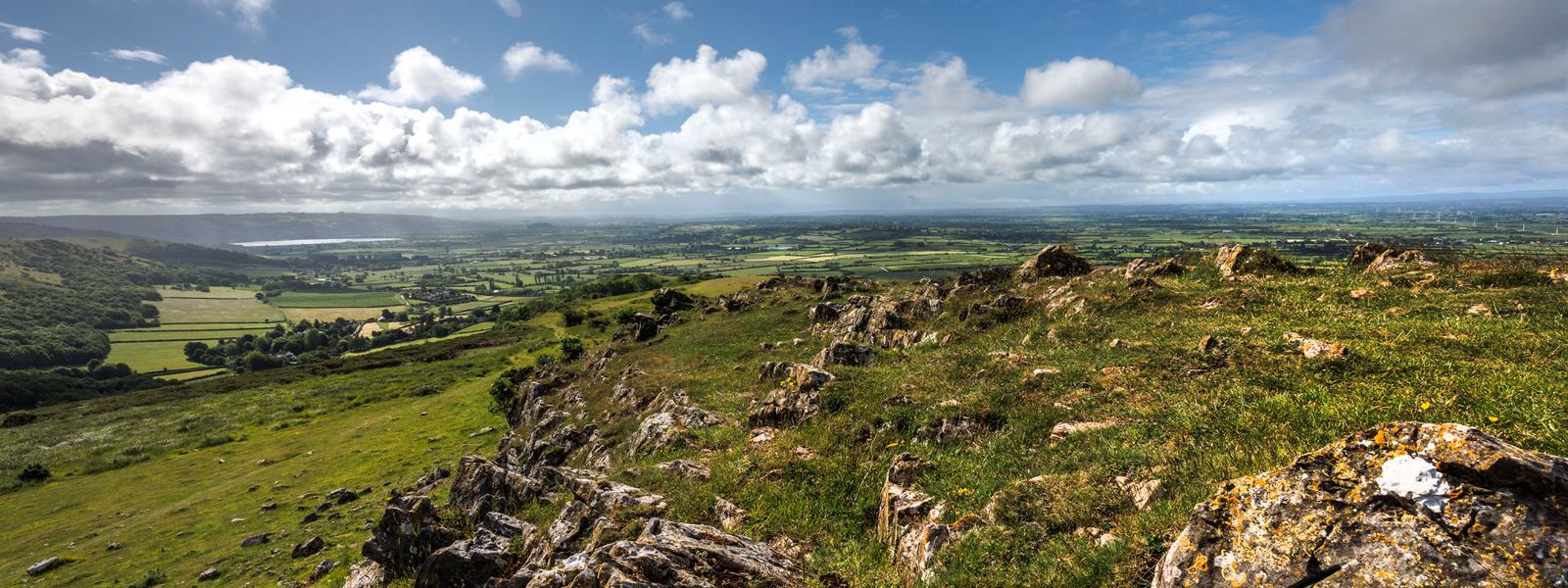Acting beyond net zero in National Landscapes:time to push locally led climate change adaptation up the agenda
The National Landscapes Association was part of the oversight group for this recent public dialogue on adaptation to climate change within England. [1] The dialogue found that participants’ initial awareness of climate change adaptation was low – but once the concept was better understood, participants were shocked by the range, immediacy and seriousness of climate change risks and feel that the time to act and adapt is now. Climate adaptation is about adjusting to the actual or expected climate and its effects, and England was seen as unprepared for the climate changes expected.
[1] By Ipsos/University of Leeds, for Defra and UKRI’s Sciencewise.

The deliberative dialogue, which provides an in-depth exploration of the views, concerns, hope and fears of a diverse group of citizens, asked participants from Greater Manchester, Inner London, Dartmoor and Exmoor, and Hull and East Riding to discuss climate adaptation with each other and with specialists, followed by a national summit.
Participants supported nature-based solutions, and said that scale of action should be based on local context, (including a mix of local/individual and, larger (e.g. government) action) – with multiple adaptations addressing risk in a holistic way. National Landscapes already operate in this way – navigating multiple priorities in a well-balanced approach – and this way of working provides a framework through which these recommendations can translate into action. Our ambition to push climate action to the top of the agenda is demonstrated by our Chairs’ statement on Climate Action and our Climate Action Framework and Toolkit
(primarily aimed at National Landscape staff teams, partners and volunteers), as well as the commitment in the Colchester Declaration to embed meaningful adaptation measures into National Landscape Management Plans. Investment is of course needed to realise the full potential of nature-based solutions; the National Landscapes Association has established a new team to accelerate this work.
Participants also prioritised improvements in informing, engaging and mobilising (which was discussed at our September conference Invested and Investing in Landscape: Who, Why, How?). As part of their vision of what a country well-adapted to climate change looks like, participants expressed a wish to live in a prosperous economy (where economic impacts of adaptation are distributed fairly) that capitalises on green opportunities and provides green jobs, sustainable agriculture and increased urban green space. The dialogue found that responsibility for action needs to be allocated fairly, and protection for those most at risk needs to be top priority – and the participants also promoted cross-party agreement and cooperation on such an important issue.
More rural locations (Dartmoor and Exmoor and Hull and East Riding) were more in favour of communities having a real role in developing and delivering adaptation measures. We’ll be interested to explore and support a real role for the community in developing and delivering adaptation measures in National Landscapes and England’s rural areas. We’ll also be following with interest any deliberative public participation that emerges under the Welsh Climate Change Strategy for Public Engagement and Action (2022-2026) and the next Northern Ireland Climate Change Adaptation Programme, which is expected in 2024.
